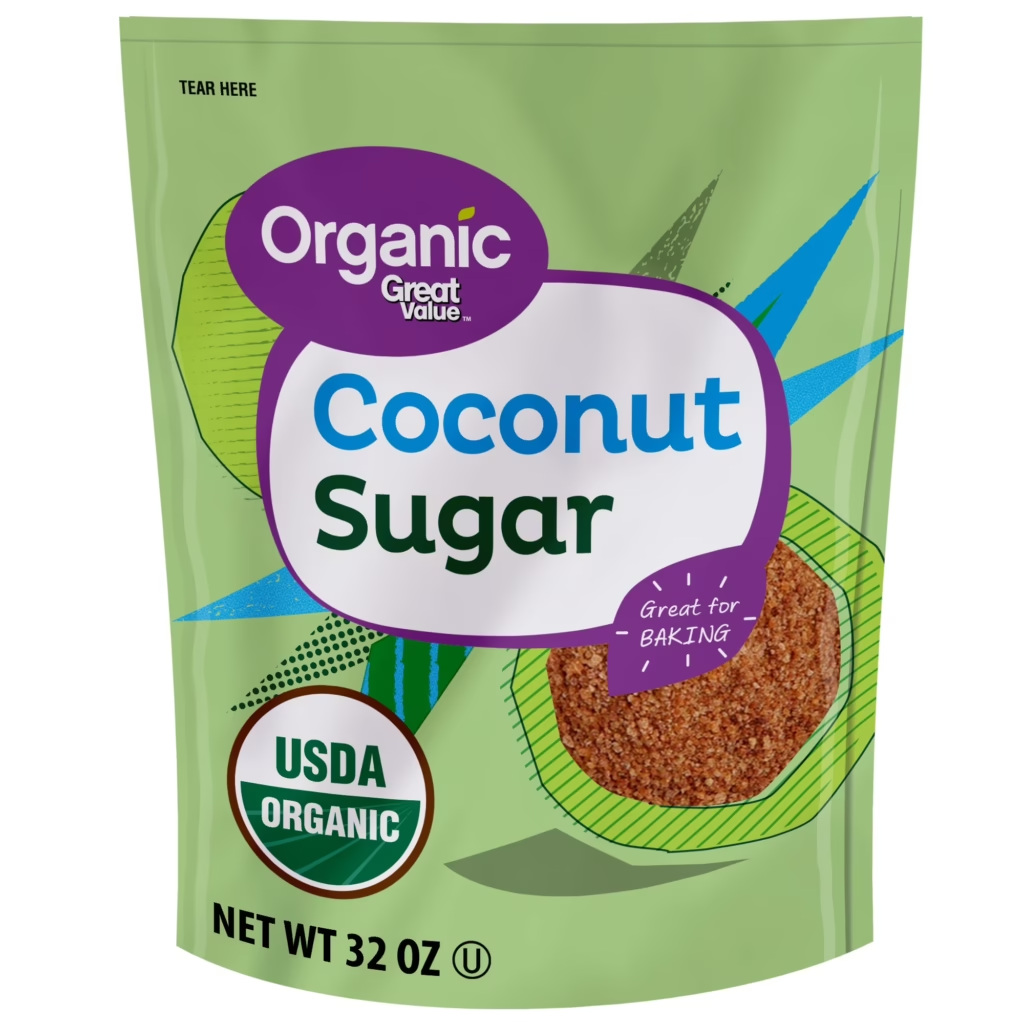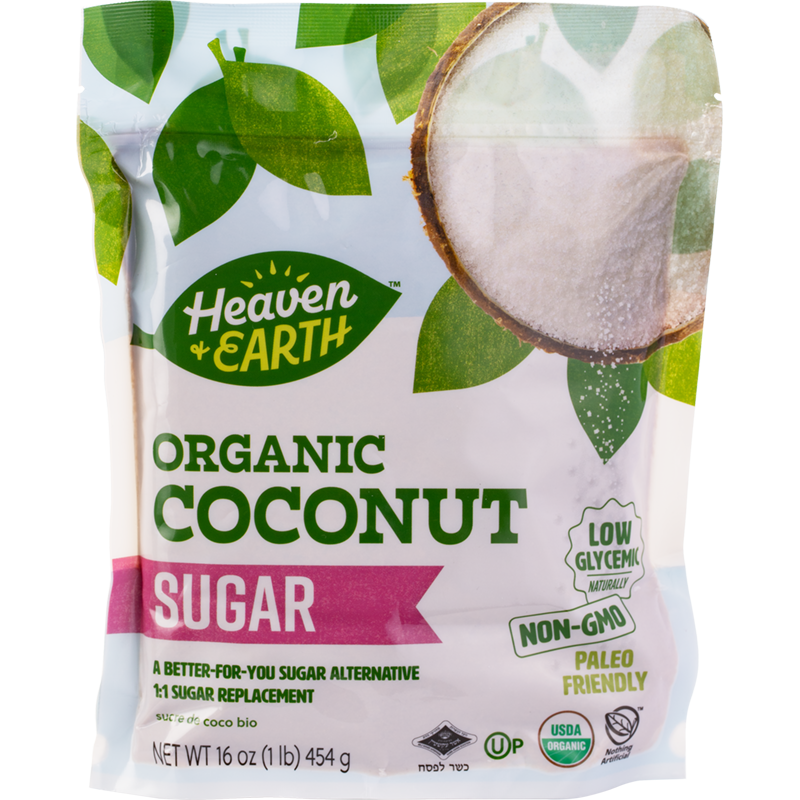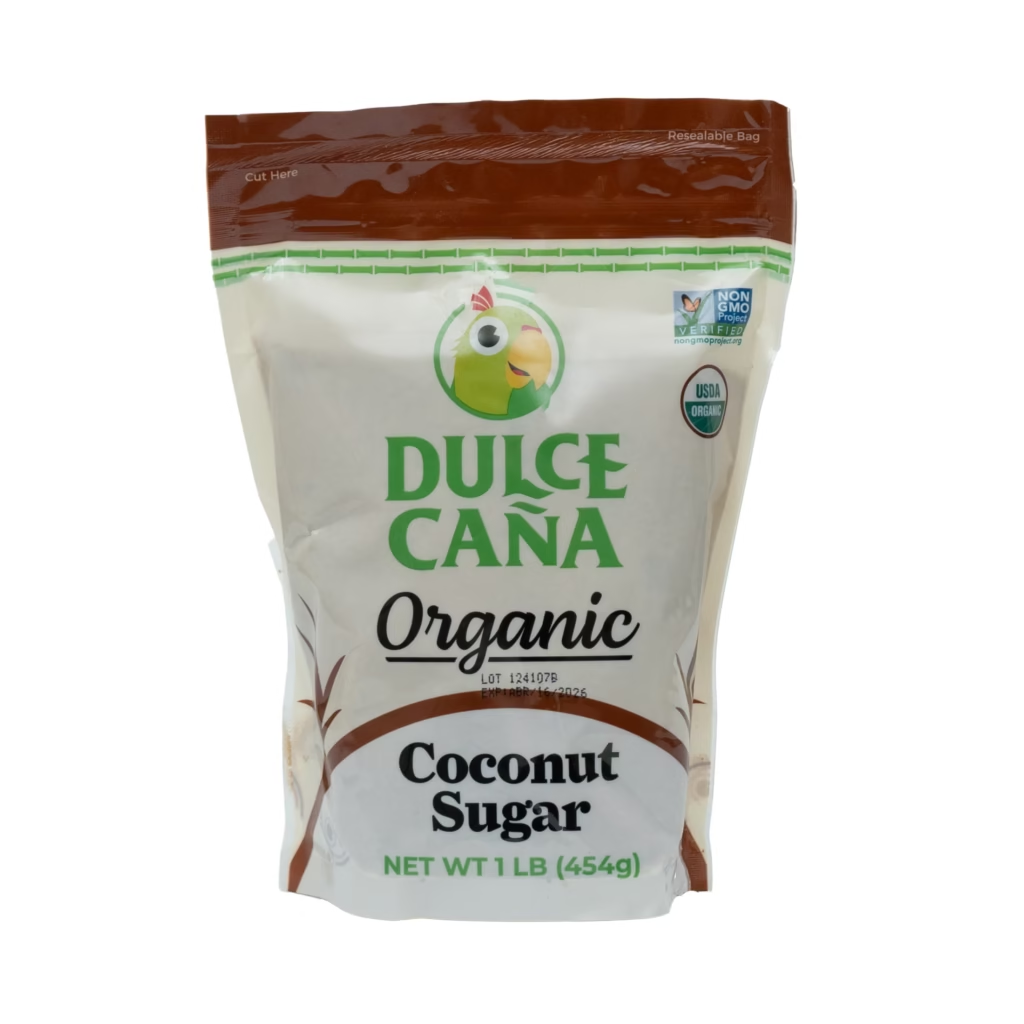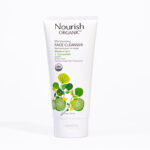Organic Coconut Sugar: Natural Sweetness with Health Benefits

Are you looking for a healthier way to sweeten your food and drinks without sacrificing taste? Organic coconut sugar might be just what you need.
Introduction to Organic Coconut Sugar
Organic Coconut Sugar offers a rich flavor and comes with benefits that regular sugar can’t match. Imagine enjoying your favorite treats while supporting your well-being and the planet. Keep reading to discover why this sugar could be the simple change that makes a big difference in your daily life.

What Is Organic Coconut Sugar
Process of makingThis sugar is a natural sweetener from the sap of coconut palm trees. It offers a healthier alternative to regular sugar. People choose it for its mild caramel flavor and lower glycemic index.
This sugar comes from the flower buds of coconut trees. Farmers collect the sap, then heat it to remove moisture. The result is fine, brown sugar crystals.
How Is Organic Coconut Sugar Made?
Farmers cut the flower buds to collect sap. The sap is boiled to reduce water content. It thickens and turns into sugar crystals. No chemicals or additives are used in the process.
What Does Organic Mean For Coconut Sugar?
This sugar is grown without synthetic pesticides or fertilizers. It meets strict farming standards. This ensures the sugar is pure and safe.
Why Choose Organic Coconut Sugar?
It contains small amounts of nutrients like iron and zinc. It has a lower glycemic index than regular sugar. This means it raises blood sugar more slowly.
How Organic Coconut Sugar Is Made
Understanding how coconut sugar is made helps appreciate its natural qualities. This sugar comes from the sap of coconut palm trees. The process is simple but requires care and skill.
The sap is collected, heated, and transformed into granules. Each step keeps the sugar organic and full of flavor.
Harvesting The Coconut Sap
Boiling The Sap
The fresh sap is poured into large pans. It is heated gently to evaporate water. The sap thickens as it boils. This step turns the liquid into syrup. Constant stirring prevents burning and keeps flavor pure.
Cooling And Crystallizing
The thick syrup is cooled on flat surfaces. As it cools, it turns into crystals. These crystals are broken into small granules. This is the coconut sugar we use in cooking and baking.
Nutritional Profile of Organic Coconut Sugar
This sugar is a natural sweetener made from the sap of coconut palm flowers. It contains more nutrients than regular white sugar. Its nutritional profile makes it a popular choice for health-conscious people. Understanding its vitamins, minerals, and glycemic index helps in making better food choices.
Vitamins And Minerals
Organic coconut sugar has small amounts of vitamins and minerals. It contains iron, zinc, calcium, and potassium. These minerals help support the body’s functions. It also has antioxidants that protect cells from damage. Though the amounts are not large, they add some nutritional value to your diet.
Glycemic Index
The glycemic index (GI) of coconut sugar is lower than regular sugar. It ranks around 35 on the GI scale. Lower GI means it raises blood sugar slowly. This helps avoid sudden spikes and crashes in energy. People managing blood sugar often prefer low-GI sweeteners like coconut sugar.
Health Benefits of Organic Coconut Sugar
This sugar offers many health benefits compared to regular sugar. It contains nutrients and compounds that support overall well-being. This natural sweetener can be a better choice for those who want to manage their health while enjoying sweetness.
Below are some key health benefits –
Blood Sugar Management
Organic coconut sugar has a lower glycemic index than white sugar. This means it raises blood sugar levels more slowly. It helps prevent sharp spikes and crashes in blood sugar. People with diabetes may find it easier to control blood sugar with coconut sugar.
Rich In Antioxidants
Coconut sugar contains antioxidants that fight harmful free radicals. These antioxidants help reduce cell damage and inflammation. Eating foods rich in antioxidants can support the immune system and slow aging.
Supports Digestive Health
Organic coconut sugar contains small amounts of inulin, a type of fiber. Inulin acts as a prebiotic that feeds good gut bacteria. A healthy gut helps improve digestion and nutrient absorption. It can also reduce constipation and bloating.
Comparing Coconut Sugar With Other Sweeteners
Organic coconut sugar stands out among natural sweeteners. It offers unique benefits in taste, nutrition, and environmental impact. Comparing it with other sweeteners helps understand its value better.
Vs. White Sugar
White sugar is highly processed and refined. It has a pure sweet taste but no nutrients. Coconut sugar contains small amounts of minerals like iron and zinc. It also has a lower glycemic index. This means it causes a slower rise in blood sugar. Coconut sugar keeps more natural nutrients from the coconut palm sap. White sugar is cheaper but less healthy.
Vs. Honey
Honey is a natural sweetener made by bees. It has a strong flavor and contains antioxidants. Coconut sugar has a milder taste and less moisture than honey. Honey is sweeter and can change the texture of recipes. Coconut sugar is granulated, making it easy to measure. Both have vitamins but honey has more enzymes. Coconut sugar is vegan, unlike honey.
Vs. Maple Syrup
Maple syrup comes from maple tree sap and has a distinct flavor. It is liquid and adds moisture to dishes. Coconut sugar is dry and less sweet than maple syrup. Maple syrup contains minerals like manganese and calcium. Coconut sugar also has minerals but in different amounts. Both are natural and less processed than white sugar. Coconut sugar is easier to store and use in baking.
Using Organic Coconut Sugar In Cooking
Organic coconut sugar is a natural sweetener with a rich, caramel flavor. It works well in many recipes and adds a unique taste. This sugar comes from the sap of coconut palm trees and is less processed than white sugar. Using it in cooking gives dishes a mild sweetness and a hint of toffee.
It is easy to swap coconut sugar for regular sugar in most recipes. Its texture and color also add a warm look to food. Below are some simple ways to use coconut sugar in cooking.
Baking Tips
Use coconut sugar as a direct substitute for white or brown sugar. It adds moisture and a soft texture to baked goods. Cakes, cookies, and muffins taste richer with its caramel notes. Coconut sugar may brown faster, so watch baking time closely. For best results, mix it well with wet ingredients to dissolve fully.
Beverage Sweetening
Coconut sugar is perfect for sweetening tea, coffee, and smoothies. It dissolves easily in warm drinks and adds a gentle sweetness. Use a small spoonful to avoid overpowering the flavor. It pairs nicely with spices like cinnamon and ginger in hot drinks. Try it in homemade lemonade for a natural twist.
Savory Dishes
Add a pinch of coconut sugar to balance spicy or sour flavors. It works well in sauces, marinades, and dressings. This sugar enhances the taste of stir-fries and grilled meats. Use it to create a subtle sweetness in curry dishes. The caramel taste complements ingredients like soy sauce and garlic.
Sustainability And Ethical Sourcing
Organic coconut sugar stands out for its focus on sustainability and ethical sourcing. These practices protect the environment and support farmers. Choosing this sugar means supporting a healthier planet and fair work conditions.
Sustainable Farming Practices
Organic coconut sugar is made using farming methods that protect the soil. Farmers avoid harmful chemicals and use natural fertilizers. This keeps the land healthy and helps trees grow strong. Sustainable farming also reduces water use and prevents pollution.
Fair Trade And Ethical Labor
Workers who harvest coconut sap receive fair wages and safe working conditions. Ethical sourcing ensures no child labor or exploitation occurs. Farmers often work in small communities, and fair trade helps improve their lives. Buying organic coconut sugar supports these fair practices.
Environmental Benefits
Coconut trees absorb carbon dioxide and help fight climate change. Organic farming avoids pesticides that harm wildlife and water. The process of making coconut sugar uses less energy than refining other sugars. This makes organic coconut sugar a greener choice for sweetening foods.

Potential Drawbacks
This sugar is often praised for its natural origin and lower processing. Still, it is important to know its possible drawbacks. Understanding these limits helps in making better choices about its use.
Though it has some benefits, coconut sugar is not perfect. It shares many qualities with regular sugar and may not be suitable for everyone.
High In Calories And Carbohydrates
Organic coconut sugar contains almost the same calories as white sugar. One tablespoon has about 15 calories. It also carries a similar amount of carbohydrates. This can affect blood sugar levels and weight if eaten too much.
Limited Nutritional Benefits
Coconut sugar has trace amounts of vitamins and minerals. These include iron, zinc, and potassium but in very small amounts. The nutrients are not enough to replace a balanced diet.
Potential Impact On Blood Sugar
Despite its lower glycemic index, coconut sugar still raises blood sugar. People with diabetes should use it carefully. It is not a safe alternative for strict blood sugar control.
Environmental And Ethical Concerns
Some coconut sugar farms may cause deforestation. Harvesting practices vary and can harm local ecosystems. Choosing certified organic and fair-trade options helps reduce this risk.
Where To Buy Organic Coconut Sugar
Finding organic coconut sugar is easier than many think. This natural sweetener has grown popular for its health benefits and unique taste. Many stores and online shops now sell it. Choosing the right place to buy ensures quality and authenticity.
Supermarkets And Health Food Stores
Many large supermarkets stock organic coconut sugar. Health food stores often carry a wider variety. These shops usually check for organic certification. You can see the product before buying. This helps to check the texture and color.
Online Marketplaces
Online shopping offers many options for this sugar. Websites like Amazon or specialty food stores provide detailed product info. You can read customer reviews to learn about quality. Delivery comes straight to your door, saving time.
Farmers Markets And Local Producers
Farmers markets sometimes have organic coconut sugar. Buying here supports local farmers and small businesses. You may find fresher and less processed options. Talking to sellers can give insights on production methods.
Specialty Organic Stores
Stores focusing on organic products often stock coconut sugar. These shops ensure products meet strict organic standards. Staff can help with product questions and offer recipe ideas. Prices might be higher but quality is assured.

Frequently Asked Questions on Organic Coconut Sugar
What Is Organic Coconut Sugar Made From?
This sugar is derived from the sap of coconut palm flower buds. It is minimally processed and retains natural nutrients.
How Does Organic Coconut Sugar Compare To Regular Sugar?
This sugar has a lower glycemic index and contains trace minerals. It offers a natural, less processed alternative to refined sugar.
Is Organic Coconut Sugar Healthier Than White Sugar?
Yes, it contains antioxidants, vitamins, and minerals. It causes a slower blood sugar rise compared to white sugar.
Can Organic Coconut Sugar Be Used In Baking?
Absolutely. This sugar works well as a substitute for brown or white sugar in most recipes.
Conclusion to Organic Coconut Sugar
Organic coconut sugar offers a natural and tasty alternative to regular sugar. It contains nutrients that white sugar lacks. Many people prefer it for its lower glycemic index. Using it can add a rich flavor to your recipes. Choosing this sugar supports sustainable farming.
It fits well in a balanced diet. Try it in baking, drinks, or cooking. Small changes like this can improve your health over time. Give organic coconut sugar a chance to sweeten your meals naturally.




Leave a Reply